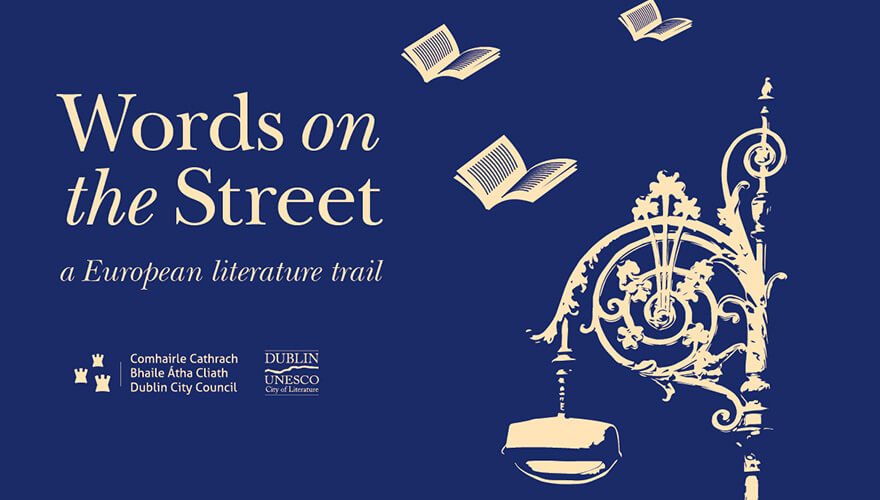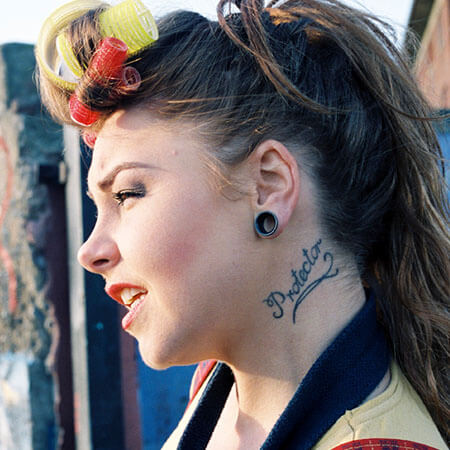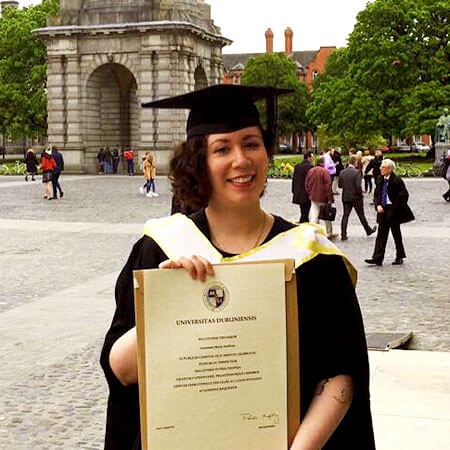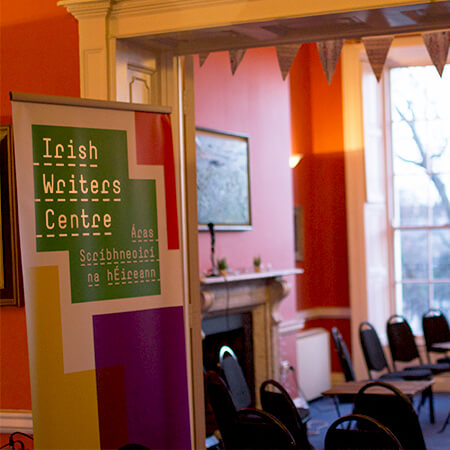Dublin’s winning bid
“Through its great novelists, poets, and dramatists, Dublin’s diaspora has exerted an unparalleled influence on the world at large, providing a unique cultural experience with literature at its heart and, in the process, spreading the city’s literary influence to the four corners of the world.”
This sentence from Dublin’s bid to become a UNESCO City of Literature neatly sums the city’s international influence. And since submitting this winning application, Dubliners at home have felt the influence of its native writers even more thanks to a set of unique literary programmes and events.
The idea that money pours in via UNESCO is a common misconception.
Most Dublin residents are by now familiar with the UNESCO emblem that features on the leaflets and posters for the city’s many literary happenings. However, it was only in July 2010, that Dublin was designated a City of Literature by the cultural arm of the United Nations.
It became the fourth city to receive such a designation – after Iowa City, Melbourne and Edinburgh. Dublin’s selection recognised its lively literary scene, which is built on the strong foundation laid by past masters.
How the designation has changed Dublin
Alison Lyons has been the Director of Dublin’s UNESCO City of Literature programme since 2016. “It was really interesting and a little different!” she laughs.
Alison explains that Dublin’s bid didn’t just involve talking about writers of the past and the reputation that Dublin already has. It was also about proving that we have a largely indigenous publishing industry.
“And great universities. And literary departments, bookshops and theatre – everything going on in the city. Then the support that the public libraries give and exposure for writers,” she adds.
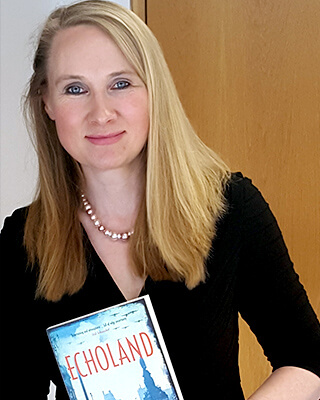
Alison Lyons
The City of Literature office now has its home within Dublin City Public Libraries. Dublin City Council and the Department of Tourism, Culture, Arts, Gaeltacht, Sport and Media fund its work.
According to Alison, the idea that money pours in via UNESCO is a common misconception.
“There’s no money coming from them at all,” says Alison. “There are 40 cities of literature. All have different economic situations, but we all have to fund our own programmes.”
However, the designation does mean there’s a budget every year for projects and grants for relevant organisations, theatres and writing groups.
“Politicians and business people always want to ask how we measure the benefit financially,” says Alison. “It’s much more small scale… affecting our citizens locally.”
Dublin UNESCO City of Literature projects
The designation is not so much about tourism, as it might seem, but has more significance for the people of Dublin. Alison says that people would travel to the birthplaces of James Joyce and Bernard Shaw regardless.
“It’s to do with the projects we run and the people who benefit,” she says. “For example, we have a ‘Reader-in-Residence’ project in the North East Inner City, where we send readers into primary schools to encourage a love of literature among children.”
We try to have something that is themed around Dublin.
One of the big projects run by Alison’s office is the Citywide Reading Campaign, where young adult authors, such as Dave Rudden and Shane Hegarty, engage children through free events and visits to schools and libraries.
However, the most well-known project associated with Dublin UNESCO City of Literature designation is the annual ‘One City, One Book’ festival.
The ‘One Dublin, One Book’ initiative
Every year, one book connected with the city is chosen and a series of events are built around it. The city is saturated with the book – in its libraries, book stores, schools and conversations.
“It’s considered a clever ploy to attract people who wouldn’t normally read or wouldn’t choose to read a particular book,” Alison says. That’s because the events go beyond hosting an ordinary book club.
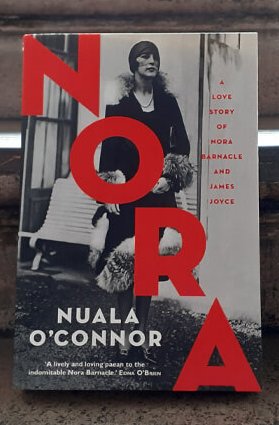
Events for 2022’s book Nora, which is a fictional imagining of when Nora Barnacle met James Joyce, featured author talks, musical performances, art shows, radio readings and an exhibition of Joyce’s letters to Nora.
In this diverse programme, there was plenty to interest people who wouldn’t normally read fiction.
Previous selections also include Echoland, Strumpet City and The Barrytown Trilogy, but choosing a book is no easy task.
“It’s all open for suggestion and it’s not some austere panel of people imposing this on everybody,” Alison explains. “It’s decided through consensus and discussion amongst library staff.”
“A lot of the time we might like to revisit something. Strumpet City was a perfect one, because publishers wanted to reprint it,” she says. “We try to have something that is themed around Dublin and the book has to have content that you can programme events around.”
They are particularly mindful of anniversaries. In 2022, Dublin celebrated 100 years of Ulysses and Dublin City’s library staff considered challenging the people of Dublin to read it. However, Nora came along and offered a more accessible option.
Supporting the city’s current writers
Despite occasionally turning to the past, it is also part of the Dublin City of Literature’s remit to support upcoming writers.
It does this through its National Emerging Writer Programme, its writers residencies, which are supported by the Irish Writers Centre, and one-off projects. ‘Dublin: A Year in Words’, for example, was a poetry project which commissioned up-and-coming spoken word artists to create new works.
“And there’s the New Theatre in Temple Bar,” says Alison. “We give them a small grant every year to produce new drama by young people. We’ve a small office, but we do as much as we can.”
We have amazing writers and I think we give them great exposure in Ireland.
Alison says developing literary links between countries is also at the heart of her work. To date, 42 other cities around the world have received the same designation as Dublin and they have all come together to work on unique projects.
Because the budget isn’t huge, the UNESCO offices need to get creative sometimes.
“One [project] we did was an online cookbook that involved recipes taken from the pages of literature from each of the cities,” says Alison. “We picked Irish stew and had little extracts from literature that referenced Irish stew… There are little ways of us coming together and being aware of each other.”

